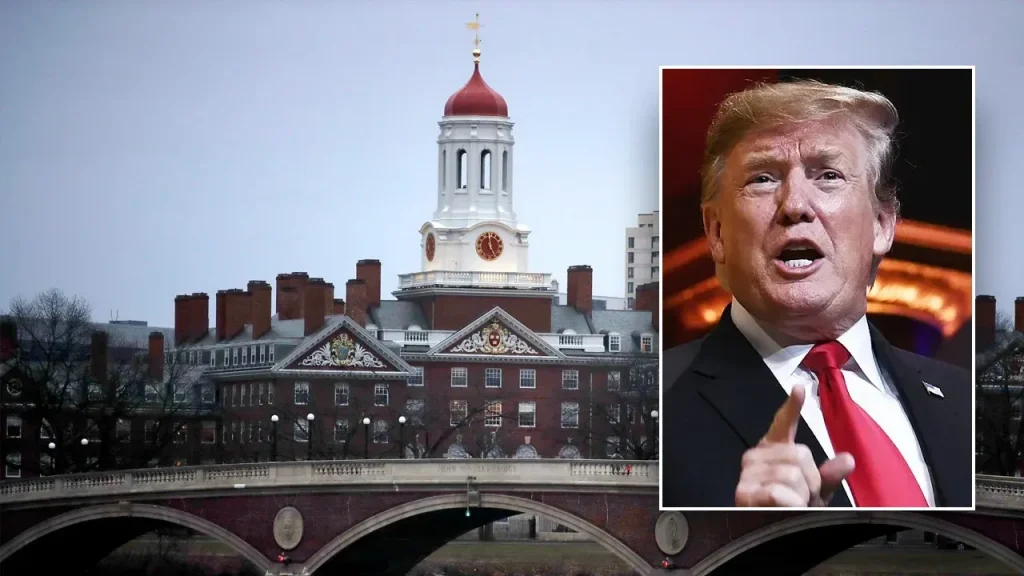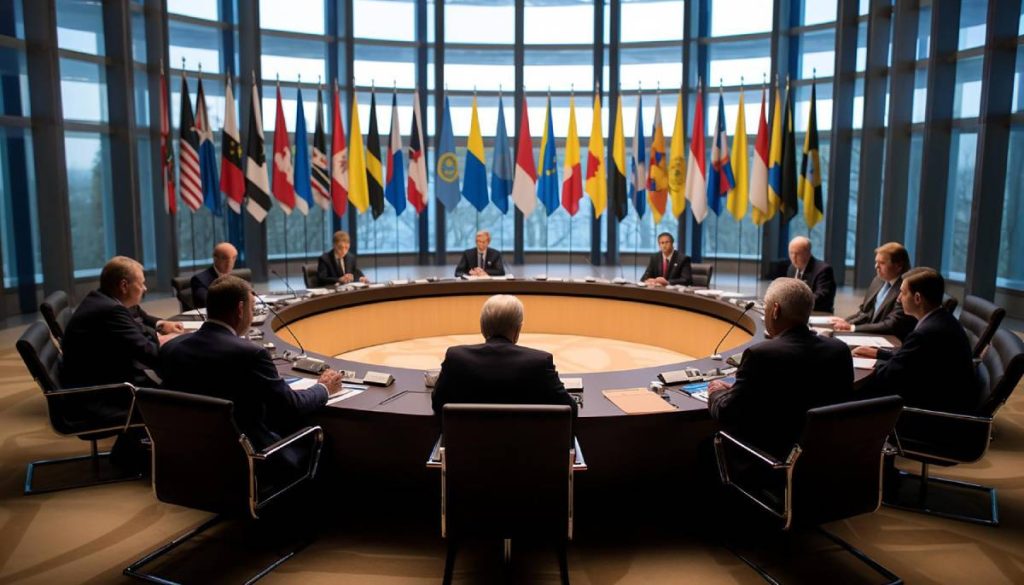The Trump Harvard funding dispute has erupted into a contentious battle over federal grants revocation and academic freedom lawsuits, as U.S. President Donald Trump threatens to redirect $3 billion in NIH grant funding from Harvard University to trade schools. This controversial move, announced via Truth Social, escalates political interference in academia, with Harvard accusing the administration of violating constitutional protections for free speech and due process. Federal agencies including the NIH and Department of Defense have already suspended grants, citing reprioritization, while Harvard argues these actions undermine peer-reviewed research and destabilize biomedical advancements. The conflict highlights tensions between executive power and institutional autonomy, with legal battles intensifying as courts weigh the implications of politicizing scientific funding. As debates over taxpayer-funded research allocations intensify, the case sets a precedent for how federal grants can be weaponized in ideological clashes.
At the heart of this institutional clash lies a broader debate about educational funding reallocation and the role of government oversight in higher education. Critics argue that diverting biomedical research funds to vocational training ignores established scholarly frameworks and risks stifling innovation in critical fields like virology and healthcare technology. Meanwhile, supporters of the administration’s approach frame the policy as promoting workforce readiness over what they call ‘radical academic agendas.’ Legal experts warn that such actions could erode the decades-old system of merit-based grant distribution, traditionally managed through rigorous scientific review processes. This dispute underscores the fragile balance between governmental fiscal responsibility and the safeguarding of intellectual independence in universities, with long-term consequences for U.S. academic leadership globally.
The Trump Harvard Funding Dispute: Overview of the Controversy
U.S. President Donald Trump’s announcement of redirecting $3 billion in federal research grants from Harvard University to trade schools has ignited a constitutional and political firestorm. The dispute centers on Trump’s allegations that Harvard employs ‘Radical Left’ faculty and undermines Republican values, while Harvard argues the move violates academic freedom and due process. The administration’s freeze on federal grants—including NIH awards for biomedical research—has been framed as a retaliatory political maneuver, with Harvard filing lawsuits alleging unconstitutional interference.
This conflict represents an unprecedented executive overreach, according to legal experts. The White House’s justification—claiming grants no longer ‘effectuate agency priorities’—has been criticized as a pretext to penalize institutions critical of the administration. The dispute underscores broader tensions between federal funding mechanisms and institutional autonomy, with implications for academic independence across higher education.
Federal Grants Revocation: Impact on Scientific Research
The revocation of federal grants threatens groundbreaking NIH-funded biomedical research projects at Harvard, which has relied on such funding for decades. Over 80% of the suspended funds originated from Congressionally approved NIH grants, designed to support peer-reviewed scientific inquiry. Researchers now face halted projects, layoff risks, and reputational damage to the U.S. as a global science leader.
Congressional appropriations committees are now scrutinizing the legality of unilateral grant suspensions. Critics argue that bypassing standard NIH review processes violates the spirit of federal funding agreements, potentially setting a dangerous precedent for politicizing scientific priorities. This has drawn bipartisan backlash from researchers and policymakers alike.
Academic Freedom Lawsuits: Harvard’s Legal Defense Strategy
Harvard’s lawsuits against the Trump administration cite violations of the First Amendment’s free speech protections, as well as due process guarantees. The university argues that targeting grant allocations based on political affiliations of faculty constitutes viewpoint discrimination. Legal teams are also challenging the NIH’s sudden policy reversal as arbitrary and capricious under administrative law.
The lawsuits highlight precedents like the 2019 Supreme Court ruling in Students for Fair Admissions v. Harvard, which emphasized institutional academic autonomy. Harvard’s case may now redefine permissible federal influence over private institutions, with potential ripple effects for universities nationwide.
NIH Grant Suspension: A Threat to Medical Innovation
NIH’s unprecedented suspension of Harvard grants has disrupted decades of collaborative research, including cancer and climate research initiatives. Scientists note that 40% of Harvard’s NIH funding supports collaborative projects with MIT and other institutions, creating a domino effect across the Boston research ecosystem. The NIH’s opaque reasoning has raised concerns about politicizing peer-reviewed research decisions.
Harvard’s counterarguments emphasize the NIH’s statutory obligation to prioritize scientific merit in funding decisions. Legal experts argue that suspending grants without peer review violates the Administrative Procedure Act, potentially leading to increased federal litigation costs and lost opportunities for medical breakthroughs.
Political Interference in Academia: A New Era of Tensions
The dispute marks a historic escalation of political interference in academic funding, with the White House leveraging budgetary powers to influence curricula indirectly. Critics warn this sets a dangerous precedent, comparing it to 1950s McCarthy-era pressures on universities. Harvard’s response has united academic freedom advocates across the political spectrum.
This conflict has reignited debates over the role of federal agencies in institutional governance. While the administration claims to prioritize ‘vocational training,’ educators argue this move risks stifling innovation and undermining America’s global scientific leadership. Scholars warn of a chilling effect on politically charged research topics.
Trade School Funding Reallocation: Ethical Concerns Raised
Proposals to divert funds to trade schools have drawn skepticism from education experts, noting that trade programs lack facilities for NIH-level research. Critics argue this misallocation betrays the original congressional intent for grant usage, potentially violating federal statutes governing grant administration.
Trade schools may lack the infrastructure for federally mandated compliance protocols, raising questions about the feasibility of the proposed reallocation. Harvard argues this gambit represents a transparent attempt to divert public funds to politically favored institutions, regardless of institutional capacity.
Constitutional Challenges to Federal Overreach
Harvard’s lawsuit alleges violations of the Spending Clause and the Administrative Procedure Act, arguing the White House bypassed required congressional oversight. The university emphasizes that federal grants are conditionally appropriated by Congress for specific purposes, not as disposable presidential discretionary funds.
Legal analysts note parallels to the Citizens United decision regarding institutional speech rights, suggesting universities may have standing to challenge funding cuts as viewpoint discrimination. This case could establish new legal precedents for federal grant administration.
Global Academic Reactions to U.S. Policy Shifts
International universities have condemned the dispute as undermining the U.S.’s standing as a beacon of academic freedom. The European Union’s Erasmus program has issued statements of concern, while Asian educational consortia have paused collaborative research agreements with American institutions pending resolution.
Scholars worldwide are monitoring the case as a test of democratic norms in academia. Observers warn that perceived politicization of grants may drive top researchers to move to countries with more stable funding frameworks, harming U.S. innovation competitiveness in STEM fields.
Congressional Investigations into Grant Allocation Practices
House Oversight Committees have launched investigations into the NIH’s compliance with grant suspension orders. Subpoenas have been issued for internal White House communications discussing Harvard’s funding status, revealing potential conflicts of interest with Trump-aligned trade groups.
Lawmakers are proposing bipartisan legislation to codify grant administration protections, requiring 60-day notice periods before major funding changes. These reforms aim to prevent executive branch manipulation of academic priorities without legislative oversight.
Long-term Implications for Federal-Academia Relationships
This dispute could permanently alter how universities approach federal funding partnerships. Institutions may now seek private donors or international collaborations to insulate against political swings. Foundations like the Gates Foundation are already increasing scholarship support for affected researchers.
Long-term consequences include potential downgrades in U.S. academic rankings and diminished global collaboration. Universities are drafting model policies to resist future executive overreach, including establishing independent funding escrows and lobbying for grant de-politicization laws.
Frequently Asked Questions
What led to the federal grants revocation against Harvard University under Trump’s administration?
President Trump’s administration revoked federal grants to Harvard citing concerns over the university’s hiring of ‘radical left’ faculty members. The $3 billion in suspended grants, including NIH and other federal awards, were frozen despite congressional appropriations, with the NIH and other agencies claiming the funds no longer aligned with ‘agency priorities.’ Harvard argues this violates academic freedom and constitutes an unconstitutional government overreach.
How does the academic freedom lawsuits challenge Trump’s actions against Harvard?
Harvard’s lawsuits allege that revoking grants based on political disagreements violates the First Amendment’s free speech protections by penalizing academic institutions for their hiring practices. These academic freedom lawsuits argue that federal funding cannot be arbitrarily withheld to influence curricular or faculty decisions, raising separation of powers concerns.
Why were NIH grant suspensions for Harvard criticized as undermining biomedical research?
The NIH grant suspensions disproportionately impact peer-reviewed biomedical research projects, which are typically awarded based on scientific merit. Critics argue redirecting these funds to trade schools ignores Congressionally mandated research priorities and disrupts years of research continuity, violating established grant allocation protocols.
How does this dispute represent political interference in academia?
This marks one of the most overt examples of political interference in academia, with the administration leveraging federal funding as a punitive tool against institutions with differing ideological perspectives. It raises concerns over politicizing academic priorities and violating longstanding non-interference norms in university operations.
| Key Point | Description |
|---|---|
| Trump’s Proposed Action | President Trump proposed redirecting $3B in federal research grants from Harvard to trade schools, citing Harvard’s hiring of ‘Radical Left’ faculty. |
| Legal Challenge | Harvard sued the administration, arguing the freeze violates constitutional free speech protections and lawful grant distribution processes. |
| Nature of the Grants | The funds are federal grants for biomedical and scientific research, typically distributed through competitive NIH processes unrelated to trade school priorities. |
| Agency Actions | Multiple agencies (NIH, DOD, DOE) suspended grants, citing misalignment with current administration priorities. |
| Political Context | The dispute reflects broader tensions over federal control of academia, with Trump framing it as a focus on ‘American workers’ over ‘radical ideologies.’ |
Summary
The Trump Harvard funding dispute highlights the administration’s attempt to redirect $3B in federal research grants from Harvard University to trade schools over alleged political bias in faculty hiring. This ongoing conflict underscores tensions between government authority over academic institutions and academic freedom, with Harvard legally challenging the move as unconstitutional interference. The case centers on whether federal grant allocations can be politically weaponized, impacting NIH-funded biomedical research priorities. As agencies like the NIH and DOD cite ‘misaligned priorities’ for suspending grants, the issue has become a flashpoint in debates about free speech, federal oversight, and the role of political influence in higher education.



